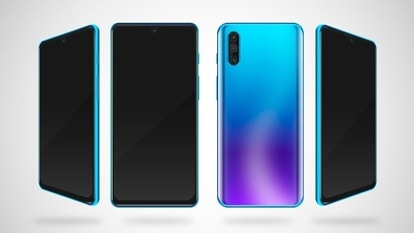Moore's Law: The reason your phone is making your PC obsolete
The fact that an average Android phone that fits in your pocket and can do all the things that your first PC could do owes its existence to that one article Gordon E Moore wrote fifty years ago.
Can you put a clock on evolution?
Fifty years ago, on April 19, 1965, an electronics engineer published a paper that said integrated chips--the heart and brains of devices such as the one you are viewing this article on right now--become twice as efficient with each passing two-year period.
It was an observation made by Gordon E Moore, who went on to co-found what is presently the largest microchip maker in the world, Intel. And in the decades since, the paper-- published in the Electronic Magazine--became known as Moore's Law.
Moore's Law is not as much about speed as it is about efficiency, from an average consumer's perspective. The fact that an average Android phone that fits in your pocket and can do all the things that your first PC--with all its desk-hogging, 30-kg paraphernalia--could do owes its existence to that one article Mr Moore wrote fifty years ago.
His law became a yardstick that dictated the goals of researchers and the industry. Companies began to push themselves, worried that their rivals will reach that double-performance level before they did. And in doing so, they ensured Moore's Law became a self-fulfilling prophecy--a prediction that becomes true not by the mere nature of something but by the efforts that went into making it valid.
But over the years, fears that industry will be unable to keep up with the law have become stronger. A ceiling, critics have said, will soon be hit when technological progress would not be this frenetic.
'It can't continue forever. The nature of exponentials is that you push them out and eventually disaster happens', Moore, now 86, said in an interview to TechWorld in 2010.
Intel too predicted the law would cease to hold true after 2013. But it hasn't, thankfully. In fact, in the 30 years prior to 2008, experts predicted the law's death every decade.
The resilience of Moore's Law is such that Intel is now on the verge of finding a new way to make chips, using 'exotic' materials that will enable it to keep up the pace of development for a few more years.
Intel presently makes chips using a 14-nanometer process. The number refers to the smallest circuit etched on each chip, and smaller circuits mean speed and efficiency.
New techniques could allow Intel to ensure the continuation of Moore's Law until at least the 7nm process, which analyst David Kanter - an expert at industry think-tank Linley Group, estimates will come into production by 2017 or 2018.
At least one facet of our modern civilisation, then, appears to be have evolved significantly. And we can tell the exact pace at which it did, thanks to a 50-year old article.
(The author tweets as @VinayakD.)
Catch all the Latest Tech News, Mobile News, Laptop News, Gaming news, Wearables News , How To News, also keep up with us on Whatsapp channel,Twitter, Facebook, Google News, and Instagram. For our latest videos, subscribe to our YouTube channel.


























